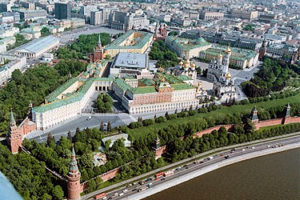JRL NEWSWATCH: “Forever Putinism: The Russian Autocrat’s Answer to the Problem of Succession” – Foreign Affairs

“… Early-stage Putinism was marked by … public complacency and indifference. Complacency flourished when the Russian economy expanded between 2000 and 2008 … enabling the rise of a Russian middle class. Indifference, which the Kremlin inculcated in part by discouraging public participation in politics, assisted in the regime’s creeping authoritarianism. One need not love Putin; it was sufficient to merely not care how he stayed in power. By 2022, Russia had arrived at something new: wartime Putinism … fully authoritarian and partially mobilized for war, yet with space left for degrees of complacency and indifference. … From March 15 to March 17, a putative presidential election will again be held in Russia … [which] will not affect the Kremlin’s preordained result. Now in his 25th year in power, Putin will serve another six-year term. … [Then] he will be eligible to run again and … extend his reign to 2036. … When Joseph Stalin died in 1953, after decades of tyranny, the battle for succession was chaotic and bloody …. a pattern that forever Putinism might replicate. Because Putin has anointed no successor, a struggle for power could well follow Putin’s exit from the scene. Those within this struggle, if they can prevent a bloodbath, would have many incentives to perpetuate the existing system. They would keep their grip on the powers lodged in the military and the security services. They would not want to see internal strife imperil Russia’s geopolitical position, and they would not want to give up the ideological constructs Putin has assembled. This raises the sobering possibility that forever Putinism, which now revolves around a single man, could outlast the tenure of Putin himself. Putin has done enough to ensure that whoever follows him is likely to be his heir.”
